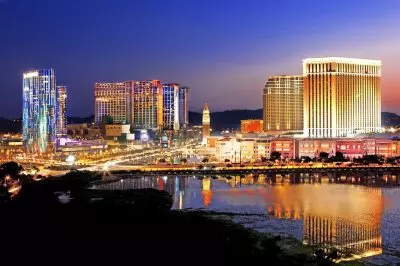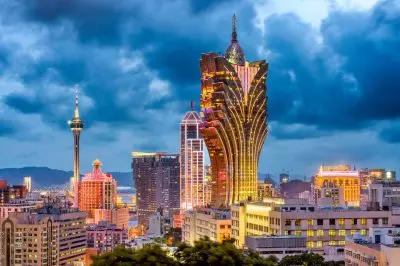 Macau is widely-renown as the gambling hub on a global scale which has a lot on offer at any given time, especially when it comes to innovations in the gaming industry. In order to keep an eye on problem gambling and keep in check the more vulnerable individuals such as casino employees, the authorities made a move and proposed a new amendment to existing law which prohibits them from participating in gambling activities.
Macau is widely-renown as the gambling hub on a global scale which has a lot on offer at any given time, especially when it comes to innovations in the gaming industry. In order to keep an eye on problem gambling and keep in check the more vulnerable individuals such as casino employees, the authorities made a move and proposed a new amendment to existing law which prohibits them from participating in gambling activities.
One of the widely-debated topics in the gaming field has always been problem gambling and how the addictive influence of gaming could be prevented in the long run. The employees working at casino venues around the world are the people who are exposed to gambling activities over the span of a large number of hours every day and this environment could take its toll on their gambling habits and general attitude towards gaming.
In addition to that, there is also the workplace stress which inevitably comes with time and could potentially trigger unhealthy gaming habits. They are some of the people with a high risk of developing gambling addiction and experiencing problem gambling. This has been one of the main reasons why the authorities of Macau consider this an issue and are ready to make a move and provide casino venue staff with the needed protection in their workplace.
The last days of 2017 saw a total of 57,207 people working in Macau’s gaming field. Recently the gaming field saw the two labor groups Power of the Macao Gaming Association and Professional for Gaming of New Macau draw the attention to the important subject. A new regulation aiming to amend the existing law was proposed. It strives to make it impossible for casino employees to enter casino venues outside of their work hours.
Face Recognition Could Facilitate Control
 The prohibition aims to prevent them from developing gambling addiction by minimizing the time they spend around gambling tables and slot machine devices. Along the lines of the new proposal, a new ID checking system will be introduced and it will heavily rely on technology which to run a background check of every player entering the casino premises with the help of a facial recognition system.
The prohibition aims to prevent them from developing gambling addiction by minimizing the time they spend around gambling tables and slot machine devices. Along the lines of the new proposal, a new ID checking system will be introduced and it will heavily rely on technology which to run a background check of every player entering the casino premises with the help of a facial recognition system.
Even though the exact technology has not been discussed as of this point, Melco Resorts and Entertainment, one of the leading casino developers in the region, was fast to propose its own facial recognition identity check system which goes by the name of MelGuard. Concerns have been expressed when it comes to the proposed ID checks which utilize facial recognition system might turn out adding more hassle to the process and make it rather cumbersome in the long run.
Ricardo Chi Sen Siu, Associate Professor in Business Economics at the University of Macau, stated that while the proposed bill is being considered, companies should work on finding a technology that is efficient enough to make the proposed checks both a seamless and accurate process which does not defeat its own purpose. Concerns have also been expressed regarding the reliability of the system and how well it could be implemented by each gambling venue.
For those who breach the established rules, there would be fines introduced which would range from MOP1,000 (US$125) to MOP10,000 (US$1,240). The only exception to the proposed law would be the first three days of the Chinese New Year holiday period, which are traditionally devoted to entertainment and often gaming; they would also have the right to enter a casino venue when it comes to professional training congregations or an event hosted by an association.
This regulation is not something new for the gambling field since it could be recalled that the year 2012 witnessed similar regulations for entry, work, and gaming in casino venues. As it turns out, they have turned out being less effective than initially expected which is why this new bill is being introduced.
After the official announcement of Macau’s Executive Council, the proposed bill is going to be transferred to the autonomous region’s Legislative Assembly in order to go through the voting process which could see it being turned into an existing law.